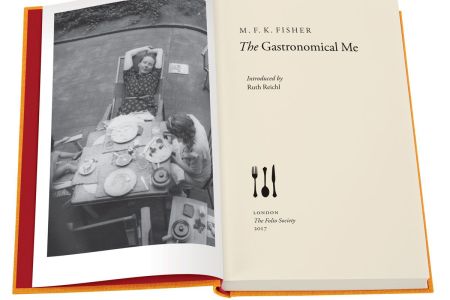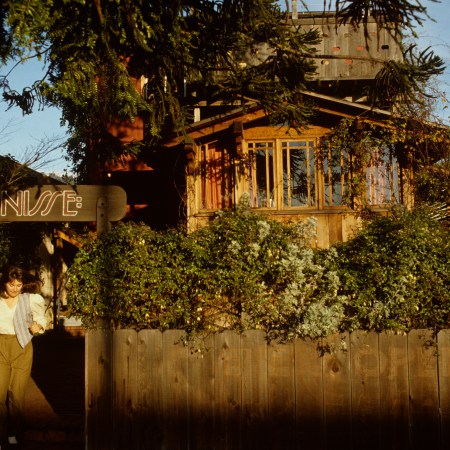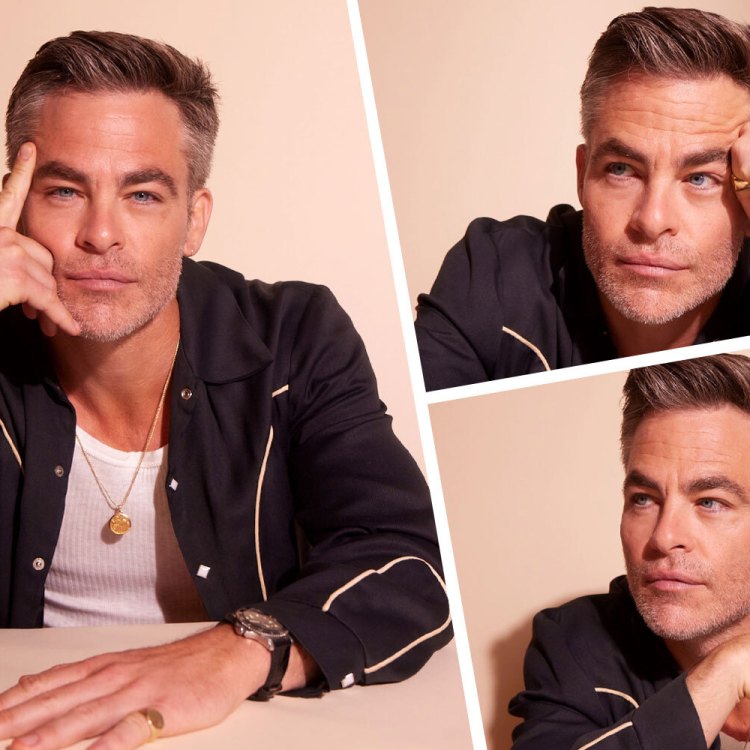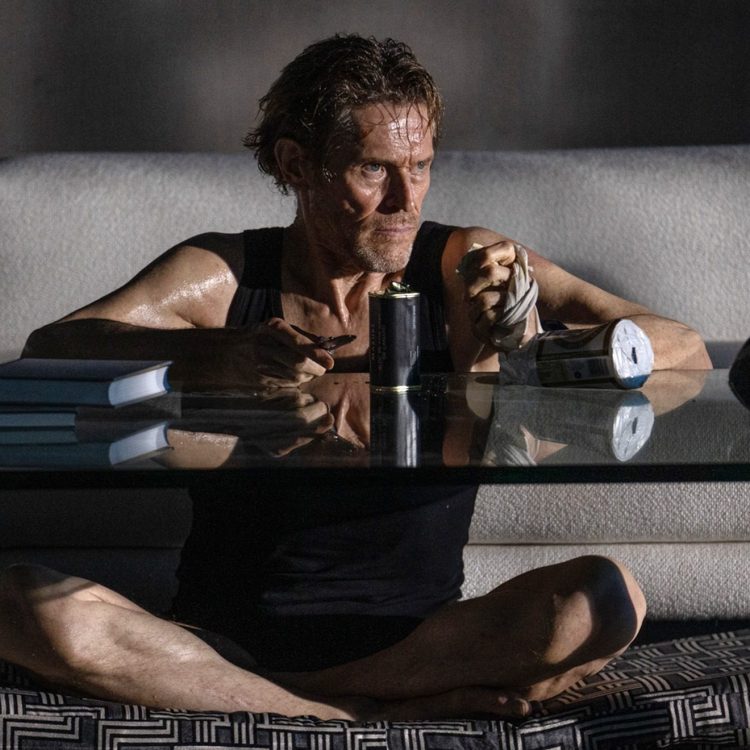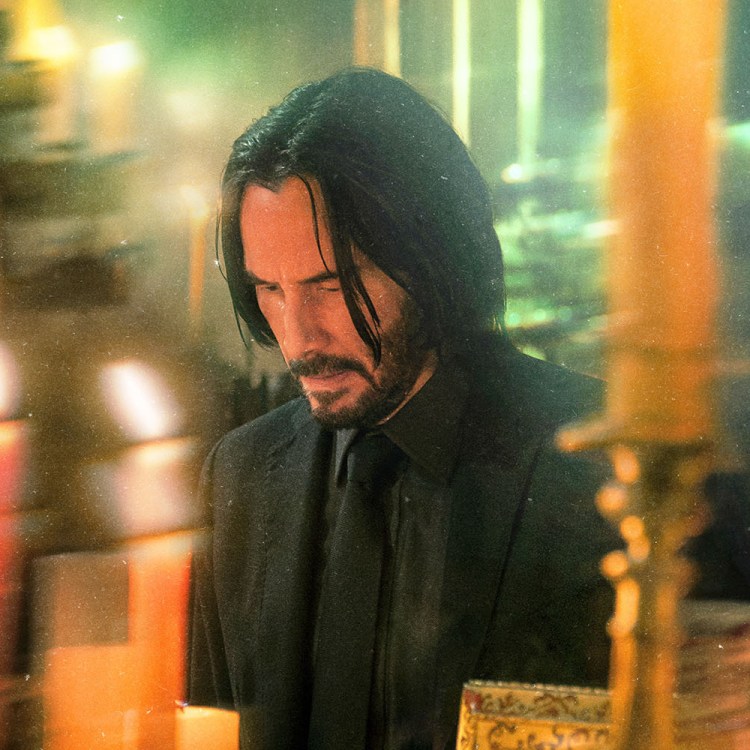For filmmaker Gregory Bezat, an encounter with M.F.K. Fisher early in his life sparked a lifelong interest in her work. Make that two encounters, actually — Bezat has stories to tell about coming across both Fisher’s words and Fisher herself. Now, that enthusiasm for Fisher’s bibliography and impact on the way people think about — and write about — food has manifested in a new documentary.
Bezat’s documentary The Art of Eating: The Life of M.F.K. Fisher debuted this fall at the Indie Memphis Film Festival. In the wake of its premiere, InsideHook spoke with Bezat about the process of making the film and the food world luminaries — including Alice Waters and Jacques Pépin — who appeared in it.
InsideHook: What was your first encounter with M.F.K. Fisher’s work?
Gregory Bezat: As a reader? It was the late 70s. The first book of hers I found was With Bold Knife and Fork. Which, by coincidence, is arguably the only cookbook that she ever put out. But it’s a far fry from being a cookbook. It’s got a bunch of recipes in it. But I think what grabbed me was the title: very simply, With Bold Knife and Fork. I started to read that and I picked up some of her other books. I picked up The Art of Eating, the book with five of her books in it, the first five books she wrote.
In 1980, for about five years, I worked at a place called Sunset Films in San Francisco, which was a division of Sunset Magazine. And at the time, Sunset Magazine was a very big deal in the West, each issue with 300 to 400 pages. People read the advertising as much as anything. In 1981, I got a call from Sunset Magazine, from the food editor, a wonderful woman by the name of Jerry Di Vecchio. And she called and said, “Look, I need somebody to come and do a recording and film a person up in Sonoma.”
She and I drove up to Sonoma to a little town called Glen Ellen and went to M.F.K. Fisher’s Last House. We sat at the little home that was built for her on about 600 acres of the Audubon Canyon ranch. It’s an absolutely gorgeous location. Jerry brought a little cooler chest with a nice lunch and a couple bottles of wine. And we sat around and did an interview with her and then spent most of the day just gabbing. I was absolutely smitten with her.
She was in her early 70s, so her mind was still very good. The Parkinson’s hadn’t kicked in. She was very vibrant. I guess I was in my mid 20s, and it really made an impression on me. I thought, “This is a really cool life.” I’ve always kept in the back of my mind that I’d love to make a film about her. She’s a very colorful person.
How did you get from there to making the film?
In 2017, I found an article in the San Francisco Chronicle — something about Last House and how they were trying to turn Last House into not really a museum. It’s very close to the Jack London house, which is a museum you can go visit. This could never be that. But anyway, after that, I had lunch with the woman who wrote the article for the Chronicle and I discussed making a film.
This was one of the interesting things from the very first meeting. She said to me, “Be aware — M.F.K. Fisher is a very complex individual and navigating the trust of all of the people is also very complicated.” And now — what is it, four or five years later? — she’s absolutely right.
The one thing I can say about M.F.K. Fisher is that she is not just a food writer. She is so much more and she lived a very complicated, wonderful life — but it had tragedy in it, real tragedy. She grew up in the Depression. She lived through World War II, and she was a single mother her whole life. Well, she became a mother. I tried to convey all that in this film.
There’s one point in the film when you’re talking about Fisher as well as Julia Child and James Beard as three figures. At a time when a lot of American cooking and eating was very mass produced, they were carrying the torch for the positive qualities of cooking and eating. Child has been back in the spotlight for the last few decades, and an acclaimed biography of Beard was recently published. Do you think that, as those qualities that they advocated for are coming back into the mainstream, there’s something in the air that’s making people want to learn more about all of them?
I’m going to digress for a little bit. M.F.K. Fisher goes to Dijon, France when she’s 20-21 years old in 1929. The first French meal she has is on the first night she’s there, and it changes her life. They have a nine course, true French meal — and that restaurant actually still exists and advertises that M.F.K. Fisher’s first French meal was here in a small little hole-in-the-wall with nine or 12 seats, something like that. So that’s 1929. In the early 1950s, Julia Child goes to France and has her life changed by her first French meal. And then in 1965 , Alice Waters goes to France for the first time and her life is changed.
Obviously, those three women have become really influential, but M.F.K. Fisher is kind of the godmother. She really recognized what was going on there. In her day, it would have been canned goods. I don’t even think frozen foods had quite come in, so there wasn’t even convenience for foods but everything was canned. I think back to that time. And I think it’s a very good question. Why is she popular again? Why are her writings, I would say. You know, I’m no sociologist, so take it with a grain of salt.
I think people — young people in particular — are looking for connection and food much more than just nourishment. You go out to dinner. You have a good time. You’re laughing or you enjoy company or you go to your family’s holiday get-togethers. It represents a whole other thing in our lives that perhaps some people are not experiencing as much as they want.
I’m hesitating to get too specific with the words, but I do believe that there. It’s because people want that personal connection again. Not that I think we’ve ever lost it — maybe we have with the iPhone. I’m not smart enough to make that leap, but I would take the chance to say that. I’m really beating around the bush here, but there is something in the air.
Here’s a very quick story. I shop at a little store in the heart of the mission district in San Francisco called the Bi-Rite, and it’s very expensive. It’s like going to a farmer’s market. And I was in there one day, and this young woman, maybe in her early 20s, was putting out produce and I said to her, “Look, have you ever heard of M.F.K. Fisher?” She said, “I have no idea who that is.” I said, “Do yourself a favor. Pick up one of her books and just start reading.” “Okay, I will.”
About two or three weeks go by and I go back into the store. And this young woman has been waiting for me to come back and she just greeted me with this biggest smile. She said, “I can’t thank you enough for leading me to an M.F.K. Fisher book.” I thought that was really telling, and I’ve always kept that young woman and that sort of age group in mind as I tried to make this film.
I think it speaks directly to them, and it should because what Fisher was writing about is timeless. There are two beautiful things about M.F.K. Fisher. It’s the timeless topics of her work. And that woman, as much as any writer, knew when to stop. Meaning, instead of just laboring on with more words and more metaphors, she would stop and let the reader’s imagination take over. I don’t know about you, but that’s what I long for in writing. I mean it’s not Ulysses — not to put Ulysses down — you know what I mean? M.F.K. Fisher, she’s accessible.
How M. F. K. Fisher Changed How We Think About Food
Ruth Reichl on the cultural impact of the legendary writerOne of the things that I learned from watching the film was that Fisher was the fifth generation in her family to write for a newspaper. How much of her family background in writing do you think influenced her? And do you think that she was writing about food sort as a reaction to that?
The family, and her father in particular, were not impressed by her life. Perhaps a comparison might be to a sports family — if the daughter is playing tennis well, they’d expect her to play tennis. Fisher’s upbringing was, “Oh, she’s writing well. We expect her to be a writer.” So they didn’t pay much attention to it. She brings home her first book, Serve It Forth, and she writes excessively about how they didn’t necessarily ignore it, but they didn’t champion it, if you will.
As for pushing back against the more straightforward journalism that other members of her family were involved with, I can say this: she grew up in a Quaker household. The grandmother was very traditional. I guess you’d say the foods were very bland, there was nothing fancy. I suspect they did things for holidays and then they had special events, but the everyday food was nothing special.
Fisher writes a beautiful thing about the froth that came to the top of strawberry jam. That would be a very special memory that she had. So she was looking for a more special feeling associated with food, and I’m kind of projecting here, but I do think that particularly when she saw France and the absolute specialty of life there and the sensuality of food, it brought up in her… I won’t use “rebellious.” But it’s in contrast to her upbringing, and I think that made for some really good writing — at least, a great impetus for writing great images. I think that she never really lost that, in the sense of, “This is where I came from, but this is the world that is really out there.” I think that was also part of the love in her life and enjoying love and being a single mother, but most importantly being her own person. She was, from very early on, an independent woman.

Something else that impressed me about the film was the array of interviewees that you were able to talk to. Was there anyone who, logistically, was a challenge to get a hold of or to record? Or was it relatively easy to make contact with everyone?
In terms of the other films I have made, this film was a breeze to get approvals. I mean, Anne Lamott? I just called her out of the blue and told her about it. She said, “Absolutely, I’m there.”
With Jacques Pépin, I remember I was out in front of a UPS, the great big UPS facility in San Francisco. We had dropped packages off. I was right out there in my car. And Jacques Pépin called me back and I pitched the film to him and wanted him to be in it. The nicest man the world has ever seen is Jacques Pépin. He said, “I don’t know why you would want me in this film.” and I said, “Well, we’d like it.”
It was such a wonderful moment. I wish I had a recording of that. And he agreed. Alice Waters did the same thing. I went right to her. She gets dozens of requests a month to do different stuff and she didn’t bat an eyelash. We went over to Chez Panisse, sat down and had a beautiful shot, if I might say, by my cameraman. I don’t think I had to ask anyone twice. I think people that I did ask really wanted to come out and support M.F.K. Fisher.
One thing that struck me while watching the film was that some of the interviewees, especially Alice Waters, seemed to be very moved when discussing Fisher. It said a lot about Fisher’s influence on the way we talk about food nowadays.
Alice knew Fisher pretty well, you know? Towards the end of her life, as she became quite well-known, M.F.K. Fisher had a constant stream of visitors coming into Last House, kind of like what I did with Jerry. I didn’t know her well enough to say, so I’m paraphrasing what others have said. They say that she kept a distance between people. She didn’t really befriend. I think Annie Lamott, or Alice, was probably the closest to her, but she kept a safe distance. And she never liked to be the center of attention. She didn’t like the notoriety she was getting.
A number of the people I interviewed were deeply moved by Fisher, and inspired. If I have been successful in this film, and if I may say with all the humbleness I can, if I inspire people, I have done the job of telling M.F.K. Fisher’s story. Because it was the feeling I got when I met her. She inspired me. I wanted to go home and paint and I wanted to go home and write. I wanted to go home and continue my filmmaking. I think Alice Waters sees it and Anne Lamott definitely sees it. John Ash; Jacques Pépin.
My timing in this is really good, in that — going back to what we said earlier — people are ready for her again. They’re really ready to feel and honestly enjoy the pleasures of life. This is me getting older: our lives are very short and it comes and goes quickly. Enjoy your life and make use of it. If there’s anything you learned from M.F.K. Fisher, it’s do that. And she did — she didn’t kowtow to the social mores of the time, the male-dominated world.
Is there anything else about your film that you’d like to discuss?
The only good thing I can say about COVID is that I was able to spend a lot of time in my office and in my editing world writing, rewriting and working on the film. I was able to really hone it. You have no idea how many versions I had to do of this film to reach where it is now. But the biggest surprise, without question, is — I knew she was an independent woman. But I didn’t realize until I really dove into her writings how important it was to her — or maybe it came naturally — just to be this independent. I am myself and I’m pursuing my art and my writing. I have utmost respect for that and it’s inspired me.
This article was featured in the InsideHook newsletter. Sign up now.

